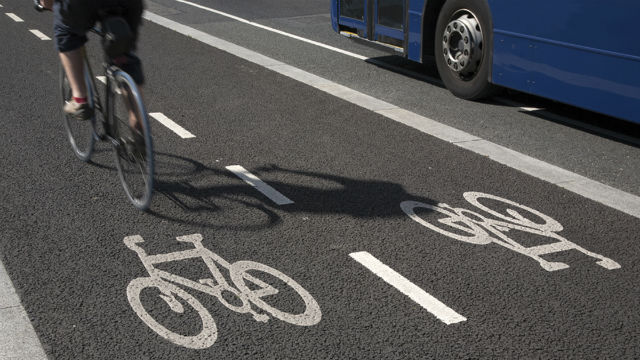BAGUIO CITY – Baguio City’s bike lane projects are under scrutiny as concerns raised by the city council spark demand for transparency to call for clarity on the 50-million-pesos allocation, along with the City Engineering Office (CEO) pledge for an update in 15 days, amplifying the focus on accountability in the city’s infrastructure development.
In a recent city council meeting in Baguio, Councilor Betty Lourdes F. Tabanda raised concerns regarding the lack of an overall master plan for bike lanes. Engineer Lordy Sabbath of the CEO admitted that, as of now, there is no comprehensive plan in place for the city’s bicycle infrastructure. Tabanda questioned how bike lanes were being established without a master plan. Sabbath explained that the city had previously worked on a project that involved coordinating with various departments to create 11 bike routes, which were presented to the council in August. These routes were implemented based on previous recommendations and suggestions from other departments.
When asked if there were any additional routes aside from the 11 presented to the council, Sabbath mentioned subsidiary routes that were included for interconnections for which Tabanda emphasized the importance of having a clear overall plan to understand the city’s interconnectedness of bike lanes.
However, the CEO officially admitted that the city only had initial plans previously presented by the Traffic and Transport Management Division, focusing on the central business district and national roads. Tabanda inquired about amendments to the original plans, leading to discussions about the current status of the overall plan.
Further clarification was sought from the Traffic and Transport Management Division, which revealed that the master plan for bike lanes was incomplete due to uncertainties surrounding road right-of-way issues. The division suggested conducting a thorough study on road right-of-way recovery before finalizing the master plan.
Tabanda recalled that a budget of PhP50 million was allocated for the master plan of bike lanes. However, the division clarified that the budget was designated for implementing the 11 routes previously presented, not for the entire master plan. She additionally questioned whether the city had seen the accomplishments of the 50 million pesos and pressed for more information on how the funds were spent.
During the discussion, Vice Mayor Faustino A. Olowan emphasized the need for transparency regarding the utilization of the 50 million pesos and raised questions about compliance with administrative orders issued by the DPWH. Olowan stressed the importance of understanding how the funds were implemented and the impact on road recoveries in the city.
In response to the queries, Sabbath requested 15 days to consolidate information from the Traffic and Transportation Management Division (TTMD) regarding the ongoing projects related to the construction of sidewalks, bike lanes, and planter boxes in certain streets of Baguio City.
The vice mayor highlighted the city council’s primary concern about the 50-million-peso allocation and the necessity for clarity on the projects that were carried out using those funds. He underscored the importance of addressing the issues affecting road recoveries and ensuring the effective utilization of resources to solve city problems.
Sabbath pledged to provide a comprehensive update within 15 days, aiming to bring clarity to the implementation of the projects and the allocation of the allocated funds for the development of bike lanes in Baguio City. By Joy Anne M. Palaoag














